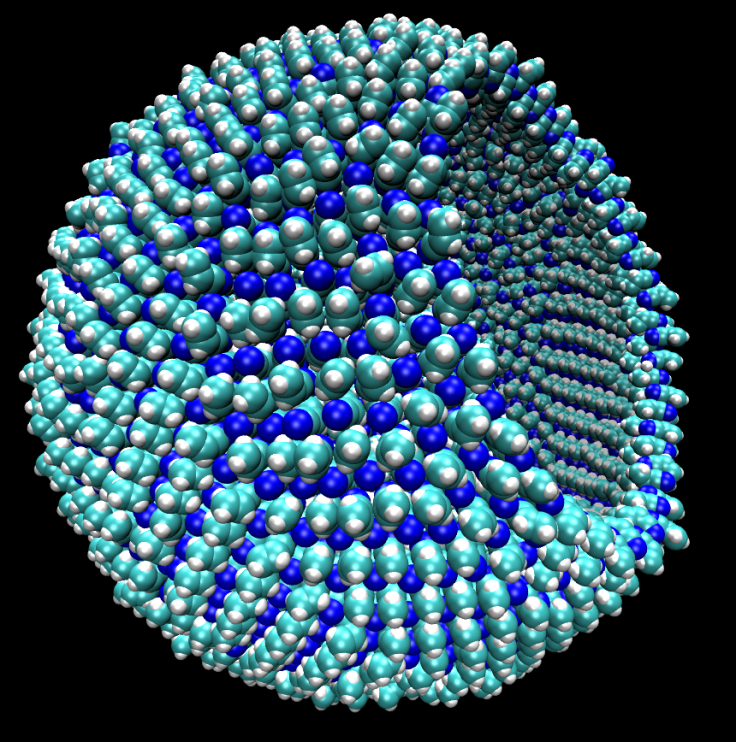Extra-terrestrial life based on methane possible on Titan show cell models

A new type of methane-based, oxygen-free cell that can survive and function in seas of methane at temperatures of 292 degree below zero has been modelled by a team of Cornell University researchers.
This offers a template for life that does not need water and can thrive in the harsh, cold climes similar to that on Titan, the giant moon of Saturn.
The theorised cell membrane, called azotosome is composed of nitrogen, carbon and hydrogen molecules and was among the most suited candidate compounds of methane that can self-assemble into membrane-like structures.
The compound acrylonitrile azotosome showed good stability, resisted decomposition, and had flexibility similar to that of phospholipid oxygen-based membranes on Earth.
The work was led by chemical molecular dynamics expert Paulette Clancy and first author James Stevenson, a graduate student in chemical engineering.
"We're not biologists, and we're not astronomers, but we had the right tools," Clancy said.
"Perhaps it helped, because we didn't come in with any preconceptions about what should be in a membrane and what shouldn't. We just worked with the compounds that we knew were there and asked, 'If this was your palette, what can you make out of that?'"
On Earth, life is based on the permeable phospholipid bilayer membrane, the water-based vesicle that houses the organic matter of every cell. A vesicle made from such a membrane is called a liposome.
Life based on methane would require different cells, realised the team.
They named their theorised cell membrane an "azotosome," with "azote" being the French word for nitrogen.
"Liposome" comes from the Greek "lipos" and "soma" to mean "lipid body"; by analogy, "azotosome" means "nitrogen body."
The azotosome shows the same stability and flexibility that Earth's liposome does.
The next step is to try and demonstrate how these cells would behave in the methane environment - what might be the analogue to reproduction and metabolism in oxygen-free, methane-based cells.
The work is inspired by science fiction writer Isaac Asimov, who wrote about the concept of non-water-based life in a 1962 essay, "Not as We Know It."
A more radical idea is that life need not necessarily be organic everywhere in the universe. Most attempts to look for extra-terrestrial life have been largely restricted to searching for organic molecular signatures.
© Copyright IBTimes 2025. All rights reserved.





















